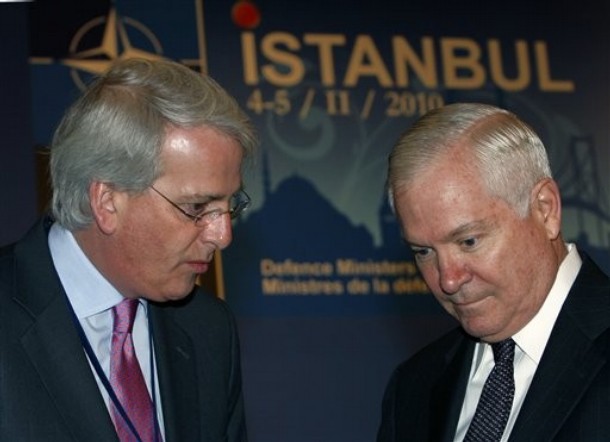
From the Voice of America: VOA: "How has NATO’s participation in the Afghan war changed the organization, or has it?"
Amb. Daalder: "This used to be an organization that was ready to react to an event that might occur, an attack on its territory. Now, this is an organization that is engaged in military operations almost as a matter of course. We have been involved since 1995 in various operations, first in the Balkans, and in the last six years, in Afghanistan. So there is a tempo and an activity that has changed this organization from a reactive… organization to a pro-active organization, building security. What we now need to see is a greater degree of reform to make it even more agile, more flexible, more pro-active than it has been in the past. And more capable of operating over great distances. After all, NATO today is operating the largest operation in its history five thousand kilometers from the headquarters in Brussels. That is an extraordinary distance to have 140,000 troops or so on the ground conducting military operations."
VOA: "There is going to be the upcoming summit in Lisbon and there will be discussions to look at NATO’s new strategic concept. What are some of the ways you think the organization should change?"
Amb. Daalder: "The challenge for the organization is to posture itself for the 21st century and to take an organization that has adapted quite a bit in the last 20 years since the end of the Cold War, an organization that has gotten used to operating what we call ‘out of area.’ To take that organization and to recognize that it no longer just working within a confined geographical region, but is now an actor in a global world. The threats that we face today are threats that can, frankly, come from anywhere in the world. They can come over cyber networks, they can come from through terrorist networks, they can come through proliferation networks, they can come on the top of a long-range ballistic missile. And all of those threats now mean that NATO, while it remains a regional organization of North American and European countries, has to act in the world at large."
Excerpt from a Voice of America interview with Ivo Daalder, the U.S. Ambassador to NATO. (photo: AP) (via newshoggers.com)
Image: ap%209%2016%2010%20%20Ivo%20Daalder%20Robert%20Gates.jpg
